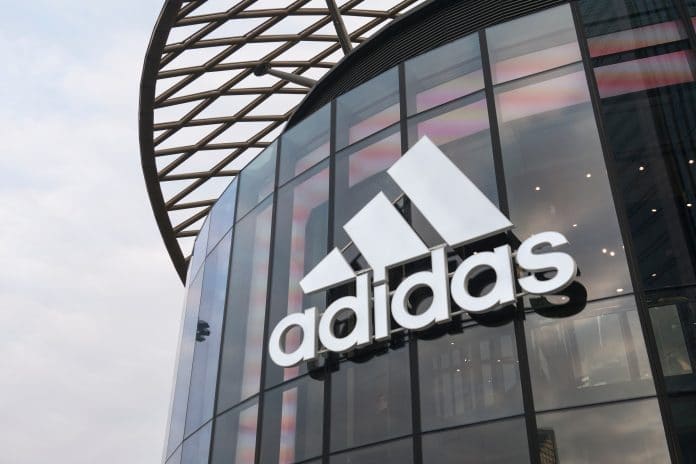With online shopping and personalisation booming during the Covid-19 pandemic, Hotter Shoes is working towards “remodelling the business” to fit modern day consumers’ habits.
Speaking to Retail Gazette, Hotter Shoes chief commercial officer Victoria Betts said Covid-19 surprisingly provided confidence for the shoes and accessories retailer to push forward its digital strategy.
Over the past few months, Hotter Shoes invested £1.5 million into an entirely new ecosystem around its website. It has also invested in digital marketing, while relaunching its app.
“The digital marketing journey has been ongoing since before the pandemic,” Betts explained.
“Most of the elements were in place. We had a brochure app where customers could see all of the products, but it didn’t give a reason to do more.
“Covid-19 just gave us the confidence, the courage and the need to accelerate it. Hotter Shoes aims to survive and serve customers even in post-Covid times.”

Hotter Shoes’ relaunched app now offers “unique experiences” such as measuring feet, as well as viewing shoes on feet without needing to go into stores.
“We found that our loyal customers were benefiting from an app, and spending more time on it,” Betts said.
Since Hotter Shoes’ CVA proposal was approved last year in July, the retailer shut 59 stores. The restructure it reduce its store estate 82 to 23. Although the CVA, when first launched as a proposal in the month prior, initially had plans to shut 46 stores, Betts said the final result was different because landlords were part of the decision-making.
“There are no more store closures planned,” she stressed.
However, Betts conceded that the store closures came as a result of Covid-19, which impacted trading.
“The CVA took place as a consequence of Covid-19,” she said.
“The reason we entered it was to make sure that we exited the troubles of Covid-19 in a stronger position, such as to enable us to survive and prosper.
“If Covid-19 had not happened, we wouldn’t have considered a CVA.”

Since Betts joined Hotter Shoes in 2016 as global omnichannel director, the retailer’s strategy has been to digitise. She was promoted to chief commercial officer in July 2019.
“Covid-19 caused us to accelerate [our digital strategy]. Our web platform business case was approved pre-Covid but we chose to invest to go live in the Covid period,” she said.
“The shift into ecommerce has happened and will continue to happen. I would encourage all retailers to invest in technology, but not just for technology’s sake, there has to be a purpose.
“We have to understand what role technology plays in the customer journey. Is it browsing and researching, and then maybe going into store and purchasing?
“Or is it actually the opposite where some consumers might like to go in store for some specialist treatment and then come home and purchase online?
“Ecommerce has to be at the heart of the experience. Retailers need to consider what the role for retail is in the post-pandemic era.”
Betts’ expertise in ecommerce growth comes from her stint at online fast fashion retailer Missguided, where she first joined as marketing and trading director in 2014 before being promoted to global ecommerce trading director in 2015.
Betts said she joined Missguided just as it was entering new international markets.
“What I learnt is that fast fashion never sleeps – it’s hugely busy and continuously ambitious,” she said.
“If Covid-19 had not happened, we wouldn’t have considered a CVA”
“I learnt about what the Missguided brand represented to consumers, and the significance of that brand rather than solely product.
“When I left, Missguided had 30 per cent of its sales coming from the international route.
“Hotter Shoes had launched into the US only five years before I joined, but at the time, it was having a bit of a shaky performance.
“Learning about international markets and localisation during my time at Missguided has helped hugely in terms of the Hotter Shoes journey.
“Missguided is an online pure-play, whereas Hotter Shoes is an omnichannel brand, and particularly had lots of retail reliance.
“What I managed to learn and bring into Hotter Shoes was that test and focus of digital first. It was super important that we leverage the market growth in online.”
Betts said that since being promoted to chief commercial officer, Hotter Shoes has “completely transformed” as a business.
“We were a bricks-and-mortar led business, serving a slightly older demographic,” she said.
“In the most recent 12-18 month tenure, we’ve become a 75 per cent digital business.
“We’re enjoying tremendous growth outperforming the market.”
Indeed, Hotter Shoes witnessed a 27 per cent increase in its online sales year-on-year in the six weeks to December 31.
“The sales were driven by a strong adoption of online,” Betts explained.
“What we saw was high levels of customers coming to the site. We were able to convert more referrals by improving our technology, our customer experience, and also our product quality and product descriptions.
“It’s volume led and customer led through marketing, and then very much making sure that those consumers that come to Hotter Shoes desperately want to buy more.”
Betts added that Hotter Shoes’ sales rise wasn’t entirely driven by Black Friday or Christmas, as the retailer was already performing ahead of Christmas sales in January through to March.
“The sales rise was also down to our brand-new collection. We launched a new spring/summer collection of footwear in February, and consumers love it,” she said.
“We’re seeing more younger consumers come and shop with Hotter Shoes rather than the usual 55-plus demographic.”
Since shifting its range by swapping out heels for more comfortable footwear such as sandals and trainers, as well as drafting in new chief product officer Claire Pearl in 2019, Hotter Shoes has managed to draw in a younger consumer base.
“We have invested in a slightly more provocative brand identity,” Betts explained.
“Rather than it being classic footwear for a slightly older consumer, it’s more comfort footwear for every product.
“As more people work from home, comfortable footwear has become popular, and we are currently empowering females aged 45 to 65 to wear those type of shoes rather than heels.”
The retailer also has a Factory Clearance section which offers shoes at discounted prices. Betts said this offering was targeted at customers on a budget and were searching for new footwear.
“Not only do we sell our products, but we make them ourselves. 85 per cent of the shoes that we sell are physically made here at our Lancashire head office. We have a factory downstairs,” she told Retail Gazette.
“That gives us the benefit of hand craftsmanship.
“We’ve also invested in automation systems in the factory to make sure everything is done to the best specification as a consequence of stores not being open during lockdown.
“We’re seeing more younger consumers come and shop with Hotter Shoes”
“Rather than just have a sale, which everybody does, we felt that it might be unique to do something which is a factory clearance.
“We launched the event to encourage customers to come and shop with us where potentially price may have been a barrier previously.”
Betts added that Hotter Shoes has converted all 23 of its stores into fitting store experiences, which gives people the chance to “explore the product”.
“We make sure they get the perfect custom fit, because it’s unlikely that customers will just wander around and buy stuff. They could do that at home,” she said.
“If the store became an experience and some theatre value added, bricks-and-mortar will win.”
Betts said Hotter Shoes prides itself on being “customer-centric”.
With over four million consumers on its database, she said the retailer is able to observe customers’ transactional and browsing behaviours. At the same time, it engages in conversations with customers, whether it’s via surveys or market research.
“Customers are part of the solution. They see products, and they are able to give feedback,” Betts said.
“In our stores, we have our advisors who are able to engage in a conversation and understand what our customers want – while they are using our custom footprint experience, which is where they can stand on the machine and get measured.
“Is it just women’s footwear that they want to see more of? Or is it men’s? Do they want to find out anything about their particular foot needs?
“Social media itself does a lot of books out there, and we have web chat as well.
“We recently switched to share all UK deliveries and deliver them through Royal Mail, because our customers showed a high level of trust in Royal Mail.
“We explored that partnership, and it worked really well for us.”
Betts said Hotter Shoes was now facing the challenge of creating a brand that is “recognisable and noticeable to consumers without alienating the core customer”.
“A challenge will be the scale of ambition and the pace of change,” she said.
Hotter Shoes’ next venture is potentially expanding into more garden centres, according to Betts.
“Garden centres are often a lifestyle place, so there’s typically a restaurant or café,” she said.
“We currently have concessions in six Dobbies garden centres, which perform well. So we’re looking to see how we might do more in garden centres.”
Betts further explained that Hotter Shoes has forecasted strong sales growth and remains “confident” for the future.
Click here to sign up to Retail Gazette‘s free daily email newsletter


















